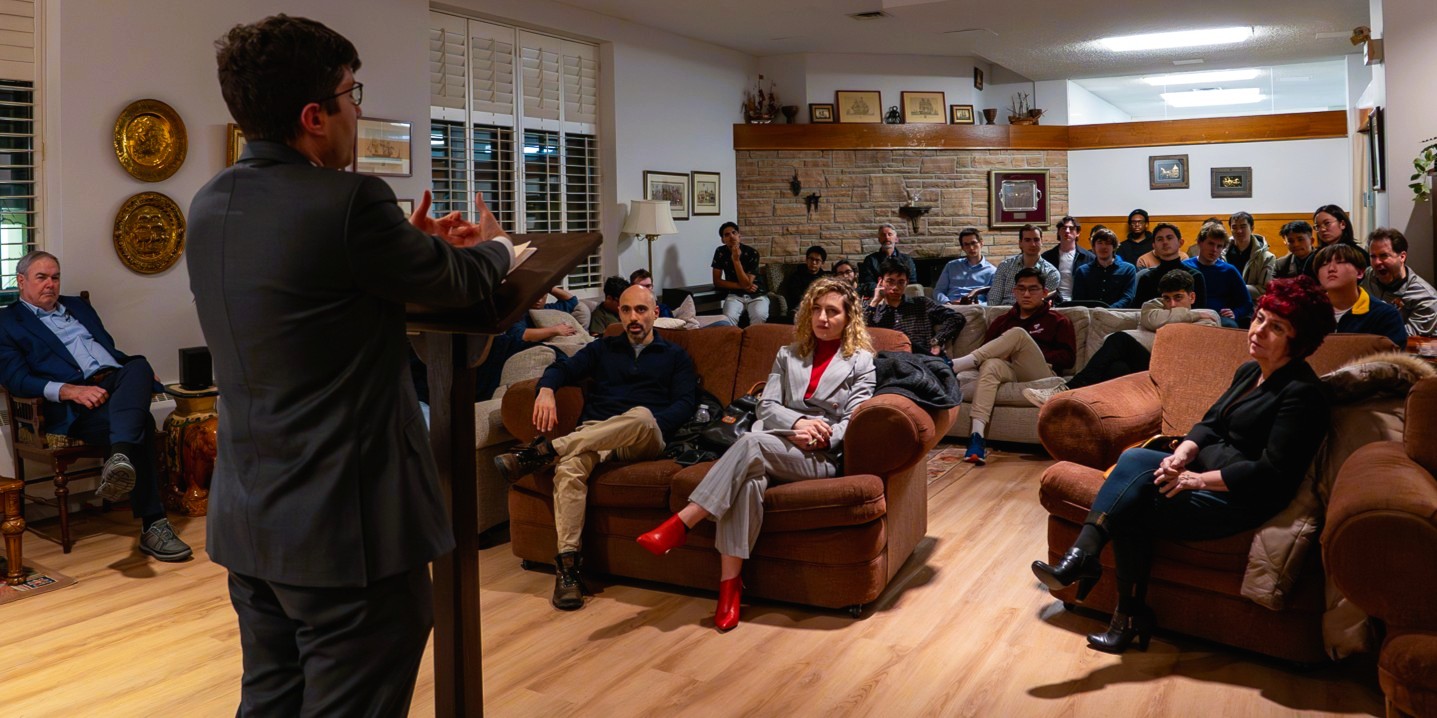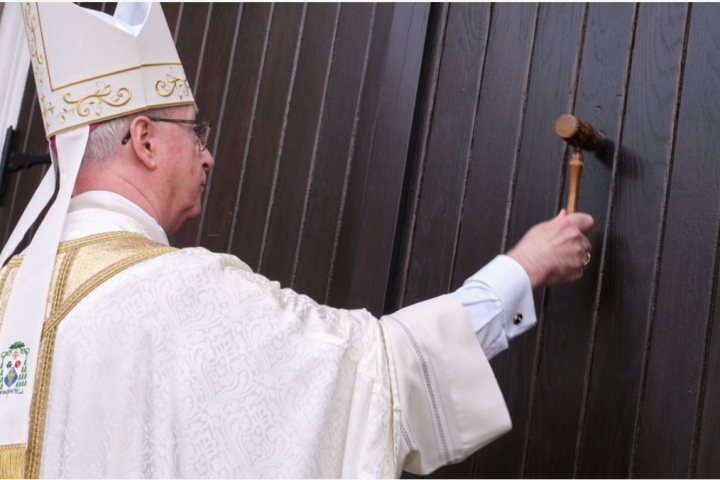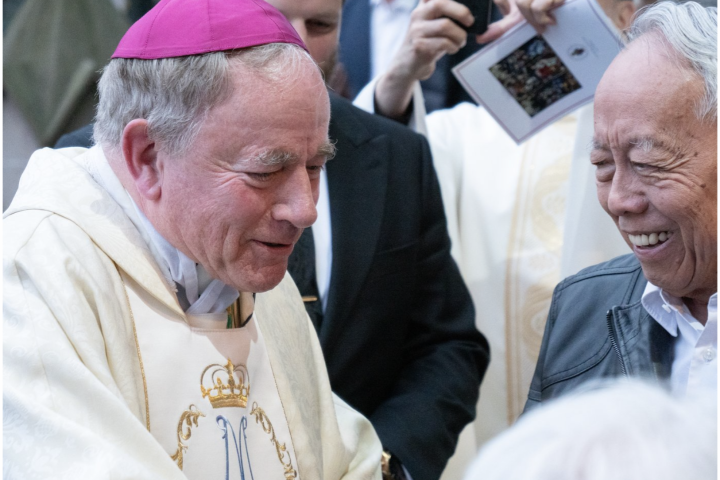TORONTO — For anyone troubled by the state of society or the world, MP Garnett Genuis offers a message of hope and encouragement from St. Peter, who knew something about trouble and sacrifice in times of political distress.
“But even if you should suffer because of righteousness, blessed are you. Do not be afraid or terrified with fear of them…. Always be ready to give an explanation to anyone who asks you for a reason for your hope, but do it with gentleness and reverence, keeping your conscience clear.” (1 Pet 3:14-16)
The Alberta Conservative MP for Sherwood Park – Fort Saskatchewan is also co-chair of Parliament’s Canada-Holy See Friendship Group and spoke recently in the comfortably-crowded common room of Toronto’s Ernescliffe College.
Peter’s message, Genuis said, is for the whole Church, and Catholic citizens hold a critical public office.
It’s up to Catholics, acting individually and together, to make Canada the place it should be through a realistic, open-eyed, patriotic love by Catholics sharing their stories boldly and clearly, projecting their convictions with hope and respect for all who hear them.
No matter how bad things might seem, giving up is no option, he said.

“The idea of giving up on our country should horrify us as citizens,” Genuis said. Instead, Catholics must take up their democratic duties.
Quoting then-Senator John F. Kennedy, he said, “In the final analysis, the kind of government we get depends upon how we fulfill those responsibilities. We, the people, are the boss, and we will get the kind of political leadership, be it good or bad, that we demand and deserve.”
That responsibility, said Genuis explained, means participating at all levels of government and society, in accordance with one’s well-formed conscience and political affiliations.
For guidance, Genuis pointed to three under-used channels of participation at the federal level: parties, petitions, and Parliamentary consultations.
Political parties, he said, fill a fundamental role in shaping democracies by defining the policies that they intend to pursue in government.
It’s also surprisingly easy for individual citizens to have a significant voice in party processes, given that party membership fees tend to be low and only a small fraction of the Canadian electorate join a party.
Every member of a party is entitled to vote in leadership races, and volunteer service on committees and campaign activities can greatly increase one’s scope for influence, Genuis said. Even going door-to-door provides opportunities for faithful, persuasive exchanges with the public.
As for petitions, these come in many forms, with varying degrees of potential effect. Online petitions can be used persuasively by elected representatives, lobby groups, and other advocates, and can offer the advantage of connections to their sponsors, such as email lists.
Parliamentary petitions, which can often be found on MPs’ websites, can be used to influence and empower Members of Parliament by arming them with information that can be shared with relevant offices and officials, and by giving them the right and opportunity to speak on the floor of the House of Commons and to receive official written responses from government.
The third channel of participation, said Genuis, is Parliamentary consultation, which offers opportunities to help shape policies in their early stages, before they are presented for debate and become law.
Presenting briefs and other supporting information to Parliamentary committees, for example, can enable sympathetic MPs to advocate wise and just positions, he said.
Sharing the range and depth of one’s experience and education with committee members or local MPs can permit an individual to be identified as an expert and be invited to join committees in the hope of persuading members to adopt appropriate language and policies in bills and regulations.
Genuis emphasized the importance of getting to know one’s elected representatives, regardless of their affiliations, and staying in touch – sharing thoughts respectfully, encouraging when possible, and gently seeking to persuade when views differ.








